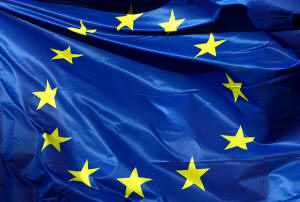EU launches investigation into Chinese medical device market
 Send a link to a friend
Send a link to a friend
 [April 24, 2024]
By Philip Blenkinsop and Ingrid Melander [April 24, 2024]
By Philip Blenkinsop and Ingrid Melander
BRUSSELS (Reuters) - The European Commission launched a probe into
China's public procurement of medical devices on Wednesday, the latest
in a series of moves that ratchet up trade tensions ahead of President
Xi Jinping's visit to Europe next month.
The investigation - which Beijing swiftly criticized - is meant to
determine if European suppliers of devices ranging from needles and
orthopaedic appliances to complex scanners have been granted fair access
in China.
If it concludes that they have not, it could lead to the bloc placing
restrictions on Chinese medical device companies bidding in EU public
tenders, ranging from enforcing a lower score for bidding Chinese
companies to full exclusion.
The probe is the first under the EU International Procurement
Instrument, which aims to promote reciprocity in access to international
public procurement markets, following long-running complaints from
European companies and governments over access to the Chinese market.
"The International Procurement Instrument is a powerful new mechanism to
support our European companies in markets that are less open than ours,"
Commission Vice-President Valdis Dombrovskis said.

He added that discussions with China on medical devices so far had been
"fruitless" but he hoped that launching the probe would lead to
"mutually agreeable solutions".
With the EU flexing its trade muscles, this investigation follows the
launch in October of a major probe into cheaper Chinese electric
vehicle.
And it comes just a day after a Chinese security equipment company was
raided by the European Commission at its Dutch and Polish offices.
The EU is also looking at subsidies received by Chinese suppliers of
wind turbines and solar power destined for Europe.
German Chancellor Olaf Scholz lobbied for better market access for
German firms in China in talks with Xi this month.
Trade will also be high on the agenda when Xi meets French President
Emmanuel Macron in Paris in May, sources say. It will be Xi's first
Europe trip in five years.
'PROTECTIONISM'?
"The EU has always boasted that it is the most open market in the world,
but of course what the outside world sees is that the EU is moving step
by step towards protectionism," Chinese foreign ministry spokesperson
Wang Wenbin told reporters.
[to top of second column]
|

A European Union flag flutters outside the EU Commission
headquarters, in Brussels, Belgium, February 1, 2023 REUTERS/Yves
Herman/File Photo
 The EU should "stop using all kinds
of excuses to suppress and restrict Chinese enterprises for no
reason", he said.
The EU's more robust stance dovetails with
Washington's firm approach.
U.S. Treasury Secretary Janet Yellen has warned China that
Washington would not accept new industries being "decimated" by
Chinese imports. U.S. Secretary of State Antony Blinken arrived in
Shanghai on Wednesday, with trade issues high on the agenda.
The European Union Chamber of Commerce in China, whose members
include Philips, Siemens and other medical equipment providers,
welcomed the new probe.
"A lack of fair access to government procurement in China has been a
longstanding issue for European companies operating in the country,"
it said.
The EU official journal listed a number of ways in which the
Commission suspected China was unfairly favoring Chinese bidders for
medical devices, including a "Buy China" policy, restrictions on
imports and conditions leading to abnormally low bids that
profit-oriented companies could not offer.
"The Commission's preliminary assessment is that the above measures
and practices result in a de jure and de facto serious and recurrent
impairment of access of (European) Union economic operators," it
said.
The Commission has invited China to submit its views and to enter
consultations to eliminate or remedy the alleged issues.
The investigation is to be concluded within nine months, but the
Commission can extend this period by five months.
(Reporting by Philip Blenkinsop; Additional reporting by Joe Cash in
Beijing, Nette Noslinger and Jan Strupczewski in Brussels and Bart
Meijer in Amsterdam; Writing by Ingrid Melander in Paris and Philip
Blenkinsop; Editing by Tom Hogue, Miral Fahmy and Alison Williams)
[© 2024 Thomson Reuters. All rights reserved.]This material may not be published,
broadcast, rewritten or redistributed.
Thompson Reuters is solely responsible for this content.
 |